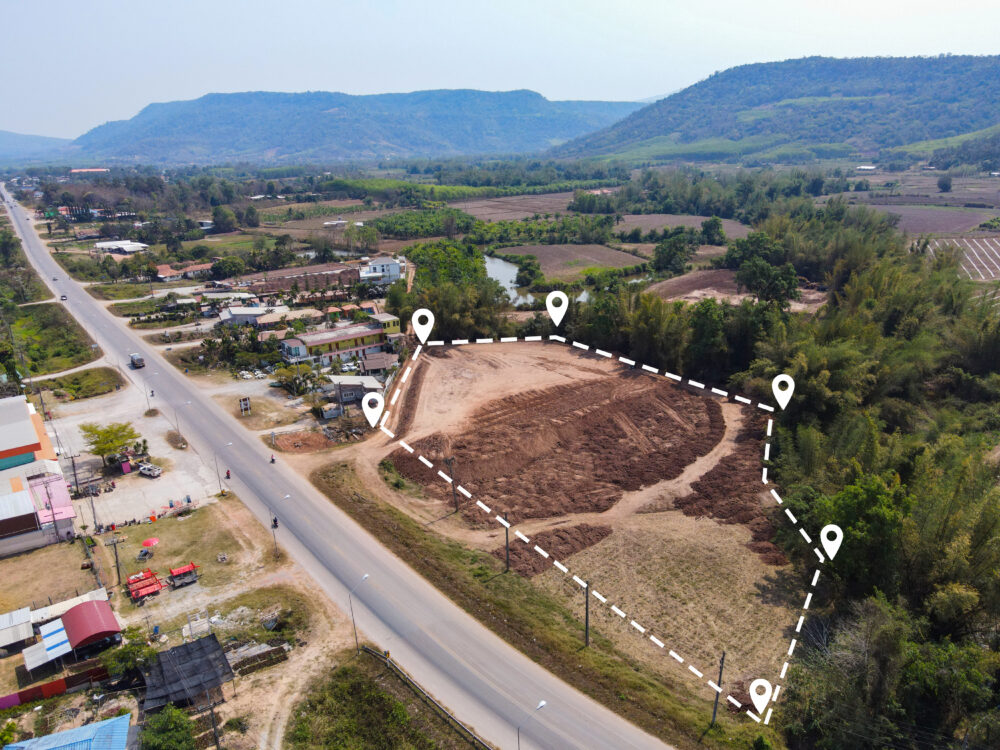Advertising plays an important role in the business operations of enterprises. Through advertising activities, businesses can increase brand recognition and attract customers to purchase and use services. However, current laws impose certain restrictions and limitations on some specific products. Before advertising, businesses and their products must meet certain legal requirements and obtain approval and/or confirmation from the relevant regulatory agencies. Among these, drugs are one of the specific products, and when advertising, businesses must carry out procedures to confirm the content of the advertisement.
Regarding the legal issue of “advertising” in general, advertising activities are regulated by the Advertising Law of 2012 and its guiding documents. Depending on the type of products, businesses need to review the specialized laws in that field to clarify if there are any conditions or procedures that need to be met. Enterprises can approach this issue in one of the following ways:
Identify the type of goods to be advertised and the advertising means.
Then, review and compare with the general regulations of the current Advertising Law and its guiding documents to identify and clarify the “basic” responsibilities and conditions that need to be met.
Next, review and compare with the specialized legal regulations to determine and clarify whether, in addition to meeting the “basic” responsibilities, the enterprise must fulfill obligations or carry out procedures with the state agencies.
Within the scope of this article, the author focuses on analyzing the legal issues to consider when registering for drug advertising content confirmation from the perspective of applying specialized legal regulations, which is the Law on Pharmacy 2016 and its guiding documents. However, the author also mentions some basic content that is closely related to the specialized legal regulations to ensure the analysis is comprehensive and complete.
1. Definition and Important Terms
1.1 Definition:
Advertising is the use of means to introduce to the public products, goods, services for profit; products, services not for profit; organizations and individuals doing business in products, goods, services being introduced, except for news; social policies; personal information.
Advertising drugs without confirmation from the competent agency or not in accordance with the confirmed content is one of the prohibited acts.
1.2. Important Terms
a) Advertising product includes the content and form of the advertisement, expressed through images, sounds, voices, writings, symbols, colors, lights, and similar forms. For example, an advertising product could be a flyer advertising drug ABC, where the content includes the drug name, ingredients, dosage, usage instructions, indications, warnings for use; and the form of content presentation includes the design of the drug box, images depicting usage instructions, etc.
b) Advertising recipient is the person who receives information from the advertising product through the advertising means.
2. Can all types of drugs be advertised?
According to Article 79.2 of the Law on Pharmacy 2016, drugs can be advertised if they are included in the list of over-the-counter drugs. Additionally, drugs that are not restricted for use or required to be used under the supervision of a physician as recommended by the competent state agency, and drugs that have been issued a valid marketing authorization in Vietnam, can be advertised. Therefore, not all types of drugs can be advertised.
3. What Means Can Be Used to Advertise Drugs?
According to Article 118 of Decree 54/2017/ND-CP, drugs can be advertised to the public through media as stipulated by the law on advertising. According to Article 17 of the Advertising Law 2012, the means of advertising are:
- Newspapers.
- Websites, electronic equipment, terminal devices and other telecommunication devices.
- Print media, audio records, video records and other technological equipment.
- Billboards, banners, signboards, advertising screens.
- Means of transport.
- Fairs, seminars, conventions, events, exhibitions, sports events and cultural programs.
- Advertisement conveyors; objects of advertisements.
- Other means of advertising as prescribed by laws.
Note: currently, when filing a dossier to request confirmation of drug advertising content to the competent state agency, the applicant must choose one of the following forms:
- Advertising on radio, television.
- Advertising through seminars, conferences, and events.
- Advertising on other advertising media (not radio or television).
The differences between these media, and how to handle certain issues that arise when advertising on radio, television, or through seminars and conferences, will be addressed by the author in another analysis. Therefore, within the scope of this article, the author will analyze advertising on other advertising media (not radio or television).
4. Identifying the entity has a right to submit the dossier for drug advertising content confirmation
Identifying the entity has a right to submit the dossier for drug advertising content confirmation is necessary and important because a large number of drugs currently circulating in the Vietnamese market are foreign drugs. For foreign drugs, the state agency needs to manage and control entities conducting business in Vietnam or having a commercial presence in Vietnam. Accordingly, the entities allowed to submit the dossier for drug advertising content confirmation include:
The drug registration establishment in Vietnam.
The representative office in Vietnam of the foreign entity registering the drug in Vietnam and authorized by the representative office.
The Vietnamese pharmaceutical business establishment authorized by the drug registration establishment in Vietnam.
Note that the drug registration establishment, even in cases of authorization to a representative office or a Vietnamese pharmaceutical business establishment authorized by the drug registration establishment in Vietnam, must be responsible for the content of the drug advertisement.
5. Identifying cases for issuing drug advertising content confirmation
According to Article 120.1 of Decree 54/2017/ND-CP, the issuance of drug advertising content confirmation is required when:
The drug advertising content has already been confirmed but there are changes in the drug registration establishment, the drug name, ingredients, concentration or dosage, dosage form, indications, contraindications, dosage, usage, use of the drug in special populations, and information related to drug warnings and safety.
6. Procedure for requesting drug advertising content confirmation
6.1 Dossier for requesting drug advertising content confirmation
- Application form for confirmation of drug advertising content according to the prescribed form;
- Sample design of the drug advertising content proposed for confirmation;
- Current drug label and package insert approved by the Ministry of Health;
- Reference documents related to the drug advertising content proposed for confirmation (if any);
- Authorization letter from the drug registration establishment to the entity named in the dossier requesting drug advertising content confirmation in case of authorization;
- Drug marketing authorization;
- License to establish a representative office of the foreign company in Vietnam for foreign entities named in the request for drug advertising content confirmation or Certificate of eligibility for pharmaceutical business for Vietnamese pharmaceutical business establishments named in the request for drug advertising content confirmation.
Notes:
The Drug Marketing Authorization and the License to Establish a Representative Office or Certificate of Eligibility for Pharmaceutical Business, as mentioned above, are no longer required as they have been abolished by law. However, in practice, when submitting the dossier, the entity named in the registration dossier should include these documents in the Application Form and attach these documents. The purpose is to demonstrate that the drug meets the advertising requirements as stated in Section 2 of this article.
The documents should be printed on A4 paper. For large outdoor advertisements, the drug advertising content can be presented on A3 paper and must clearly state the size ratio compared to the actual size. All documents in the dossier must have the seal of the entity requesting the confirmation of drug advertising content. In cases where the advertising content has a spatial structure, the dossier must include a description on A3 paper with the following mandatory content:
a) Spatial structure;
b) Numbering of surfaces, dimensions of each surface;
c) Size ratio of the design sample compared to the actual sample.
6.2 Procedure
Competent authority: Within 15 days from the date of receiving a complete dossier for drug advertising content confirmation, the Drug Administration – Ministry of Health will review and issue the drug advertising content confirmation.
Fee for appraisal of the drug advertising content confirmation: 1,600,000 VND per dossier.
7. Important Considerations for Drug Advertising Content
The content described in this section has a significant impact on whether the dossier for confirmation will be approved by the state agency. Additionally, if the advertising content is missing any required elements, the entity named in the dossier may be subject to administrative fines (please refer to Section 10 of this article). Therefore, to save time and effort, the entity named in the dossier should thoroughly review and ensure that the advertising content fully and accurately meets the legal requirements. In particular:
(i) Requirements for drug advertising content:
The drug advertisement contents shall comply with the following documents:
a) The label and package insert approved by the Ministry of Health;
b) The treatise on the drug in the National Pharmacopoeia of Vietnam;
c) Related instructions provided or recognized by the Ministry of Health.
(ii) The drug advertisement contents have the following compulsory information:
- Drug name;
- Active ingredients or herbal materials in the approved package insert. Names of herbal materials must be written in Vietnamese language. Names of untranslatable foreign herbal materials may be written in Latin language;
- Indications;
- Uses;
- Dosage;
- Contraindications and warnings for special users (pregnant women, breast-feeding women, children, old people, people having chronic diseases);
- Cautions and what to avoid when using the drug;
- Side effects and adverse effects;
- Name and address of the manufacturer;
- The text “Đọc kỹ hướng dẫn sử dụng trước khi dùng” (“Read the instructions carefully before use”);
- The text “Số Giấy xác nhận nội dung quảng cáo thuốc của Bộ Y tế: …/XNQC…, ngày … tháng … năm…;” (“Number and date of the certification of drug advertisement contents issued by the Ministry of Health: …”) at the end of the first page;
- Pages of a multi-page document must be numbered. The first page must specify the number of pages and contain the table of content;
- Reference documents and extracts therefrom are specified. The extracts must be accurate without addition or removal of information which leads to misunderstanding of the safety and efficacy of the drug.
Other requirements:
- Voice and text in a drug advertisement shall comply with the Law on Advertising.
- The font size in drug advertising content must be clear, legible, and easily recognizable, but no smaller than font size 12 in VnTime or Times New Roman on A4 paper.
- A drug advertisement may only provide information about the drug and may not provide information not related to the drug.
8. Information and images banned from drug advertisements
- Information and images prescribed in the Law on Advertising.
- Information that causes misunderstanding about the ingredients, effects, indications or origin of the drug.
- Information causing the viewers to believe that the drug is the best, the drug can be used without physician’s counsel, the drug is completely harmful, the drug has no contraindications or adverse effects.
- Statements, words, or images that are excessively interpretative, leading to misunderstandings about the drug’s effects, indications, or efficacy, or that exceed the approved effects, indications, or efficacy of the drug.
- Listing the effects of each ingredient in the drug in a way that exaggerates the drug’s overall efficacy or causes confusion between the effects of each ingredient and the effects of the drug.
- The following words and phrases: “điều trị tận gốc”, “tiệt trừ”, “chuyên trị” (“complete treatment”), “hàng đầu”, “đầu bảng”, “đầu tay” (“best”, “top”), “lựa chọn”, “chất lượng cao” (“high-quality”), “đảm bảo 100%” (“100% guarantee”), “an toàn” (“safe”), “dứt”, “cắt đứt”, “chặn đứng” (“stop”, “end”), “giảm ngay”, “giảm liền”, “giảm tức thì” (“relieve instantly”), “khỏi ngay”, “khỏi hẳn” (“treat instantly”), “yên tâm”, “không lo”, “khỏi lo” (”no worries”), “khuyên dùng” (“recommended”), “hotline”, “điện thoại tư vấn” (“hotline”).
9. Indications Not Allowed in Drug Advertising Content
a) Treatment of tuberculosis or leprosy;
b) Treatment of sexually transmitted diseases;
c) Treatment of insomnia;
d) Aphrodisiac indications;
đ) Treatment of cancers or tumors;
e) Drug detoxification;
g) Treatment of diabetes mellitus or similar metabolic disorders;
h) Treatment of diabetes mellitus or similar metabolic disorders;
i) Drug or medicinal material quality test results;
k) Pre-clinical study results;
l) Clinical study results or bioequivalence study results that have not been recognized by the Ministry of Health
m) Names, positions, letters of other organizations or individuals used for advertising purposes
n) Origin of the drug or medicinal material used for advertising purposes;
o) Image, name or symbol of a health worker;
p) Images of an animal or plant on the list of priority protected endangered, precious and rare species.
q) Words that are expressed as advice or tips that recommend the drug.
r) Images of patients used for description of symptoms or effects of the drug that are not conformable with relevant documents and instructions provided or recognized by the Ministry of Health.
10. Effect of certification of drug advertisement contents
- The certification of drug advertisement contents does not have a specific expiration date and shall be invalidated in the following cases:
a) Giấy đăng ký lưu hành thuốc hết hiệu lực;/The marketing authorization expires;
b) Thuốc bị thu hồi Giấy đăng ký lưu hành;/The marketing authorization is revoked;
c) Changes that necessitate the issuance of a Drug Advertising Content Confirmation include changes in the drug registration establishment, drug name, ingredients, concentration or dosage, dosage form, indications, contraindications, dosage, usage, use of the drug in special populations, and information related to drug warnings and safety;
d) A regulatory body recommends that the use of the drug should be restricted or supervised by medical practitioners;
đ) The drug contains an active ingredient or herbal material that has been removed from the list of OTC drugs promulgated by the Minister of Health.
- When the marketing authorization is renewed, the certification of drug advertisement contents will be automatically renewed with the same duration as that of the marketing authorization.
11. Administrative penalties
Notes:
The content in this section is intended to cite some violations and does not cover all violations stipulated by the law. Therefore, for each violation, it is necessary to research and review the current regulations.
The fines mentioned in this section are applicable to individuals. For the same administrative violation, the fine for organizations is twice the amount applicable to individuals.
| Violations |
Administrative violation fines
|
|
Advertising of prescription drugs; over-the-counter drugs that are recommended by the competent state agency to be restricted in use or used under the supervision of a physician; drugs that no longer have a valid marketing authorization. |
Fine: 50,000,000 VND to 70,000,000 VND. Remedial measures: Required to dismantle, remove, or delete the advertisement or recall printed products and magazines with the advertisement.
|
|
Advertising of special products, goods, or services without prior content confirmation from the competent state agency as required by regulations.
|
Fine: 20,000,000 VND to 25,000,000 VND. Additional Penalty: Suspension of the pharmaceutical business license, product announcement registration certificate, or medical examination and treatment license for 1 to 3 months in cases where drug advertising violations occur 2 or more times within a 6-month period. Remedial measures: Required to dismantle, remove, or delete the advertisement or recall printed products and magazines with the advertisement. |
| Failure to correctly state or clearly read the drug name, active ingredient name (excluding herbal medicines and traditional medicines), contraindications, recommendations for special populations, and the recommendation “Read the instructions before use” in drug advertisements on print media, radio, television, and online newspapers.
Failure to fully display the drug name; active ingredient name (excluding herbal medicines and traditional medicines); the name and address of the organization or individual responsible for marketing the product; and the recommendation “Read the instructions before use” in drug advertisements on outdoor advertising media.
|
Fine: from 5,000,000 VND to 10,000,000 VND. |
| Advertising of drugs that lacks any of the following content:
a) Drug name; b) Active ingredient name (excluding herbal medicines and traditional medicines); c) Indications, excluding those for the treatment of tuberculosis, leprosy, sexually transmitted diseases, cancer, tumors, diabetes, or similar metabolic disorders, chronic insomnia, and indications with an aphrodisiac effect; d) Contraindications or recommendations for special populations such as pregnant women, breastfeeding women, the elderly, children, and individuals with chronic diseases; đ) Name and address of the organization or individual responsible for marketing the product; e) Recommendation “Read the instructions before use.”
|
Fine: from 10,000,000 VND to 20,000,000 VND. Remedial measures: Required to dismantle, remove, or delete the advertisement or recall printed products and magazines with the advertisement.
|
| Advertising of drugs that does not match the content confirmed by the competent state agency; advertising of drugs that are under review or processing according to regulations; advertising of drugs based on advertising information documents that have expired.
Advertising of drugs that do not have a marketing authorization or where the marketing authorization has expired.
|
Fine: From 30,000,000 VND to 40,000,000 VND. Remedial measures: Required to dismantle, remove, or delete the advertisement or recall printed products and magazines with the advertisement.
|





































